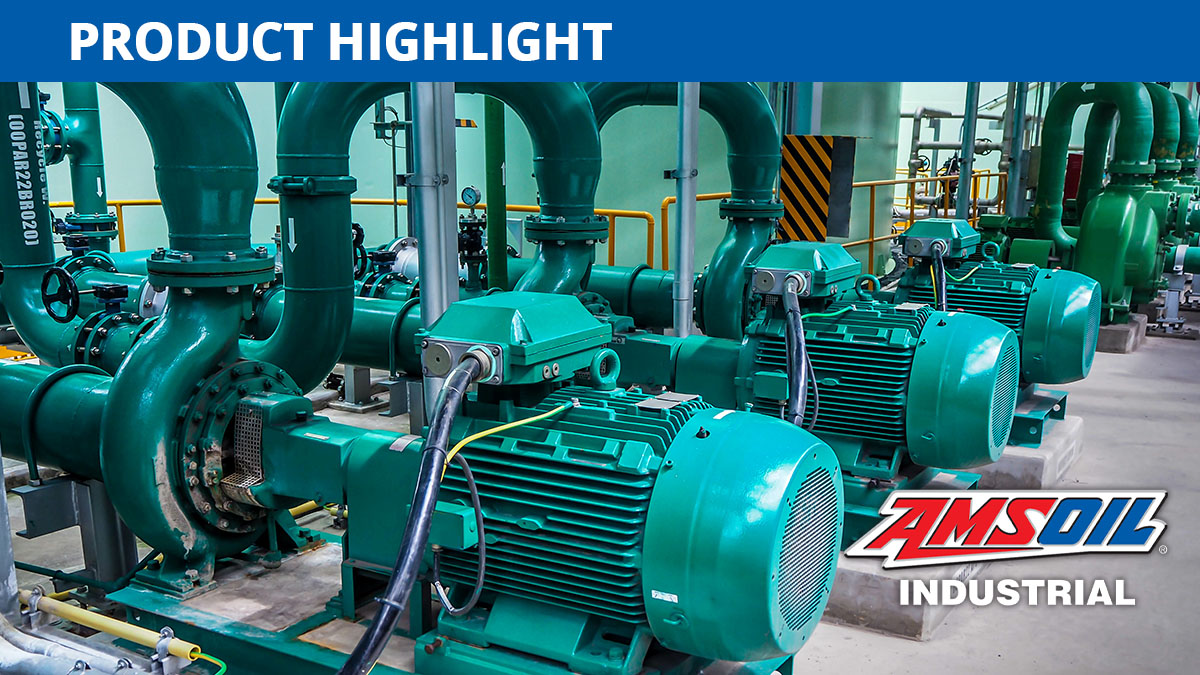Electric motors power countless machines and their reliable operation is crucial for plant productivity and profitability. Yet, electric motor grease is an often-overlooked factor that is critical to operational excellence.
Challenges for electric motors include incorrect lubricant selection, contamination, loss of lubricant and overgreasing, which can significantly increase operating temperatures and reduce the grease’s lubricating capability. Let’s explore some key electric motor grease considerations and best practices.
Understanding Electric Motor Lubrication
Unlike internal combustion engines, electric motors have fewer moving parts. Most electric motors are designed with grease-lubricated, anti-friction, rolling-element bearings. However, the bearings supporting their rotating shafts are still subject to wear and tear. Friction at these points can lead to increased operating temperatures, reduced efficiency and premature failure.
That’s where electric motor grease comes in. Grease protects these bearings with an oil film that prevents harsh metal-to-metal contact between the rotating elements and races. It acts as a barrier between the bearing components, minimizing friction and wear, and extending bearing life. But not all greases are created equal. Electric motors have specific lubrication needs that must be addressed:
-
Viscosity: The viscosity in electric motor grease should be appropriate for the motor’s load and speed at operating temperature to maintain a proper oil film that helps with operating efficiency.
-
Consistency: NLGI 2 grease consistency is commonly used in electric motor bearings, providing ease of startup and the ability for the grease to stay in place at operating temperatures.
-
Oxidation: Electric motors often operate at elevated temperatures, making oxidation resistance important for long grease life.
-
Thickener: The type of thickener in the grease determines its texture and performance. Polyurea thickeners are common in electric motor applications due to their ability to last a long time between lubrication intervals.
-
Corrosion: Depending on the application, rust and corrosion resistance may also be a high priority.
The Right Electric Motor Grease
Selecting the right grease is only half the battle. Consult your motor manufacturer’s recommendations for specific lubrication guidelines based on the motor’s design and operating conditions. Bear in mind that proper application and maintenance practices are equally essential for optimal motor performance and grease life. Here are some best practices:
-
Read the manual: Every motor is unique, and lubrication intervals and methods can vary. Always refer to the manufacturer’s recommendations for specific greasing points, quantities and intervals.
-
Clean before you grease: Before applying fresh grease, remove any dirt, contaminants or old grease buildup from the fittings and surrounding areas to prevent contamination and ensure proper grease distribution.
-
Use the right equipment: A high-quality grease gun designed for electric motor lubrication is essential for precise and controlled application. The best practice is to have a designated gun for each grease to reduce the risk of cross-contamination. Also, avoid overgreasing, which can push grease past the seal and into the internal parts of the motor causing motor failure.
-
Monitor and adjust: Regularly monitor motor temperatures, noise levels and vibration for signs of lubrication issues. Adjust greasing intervals based on operating conditions and motor performance.
-
Proactive maintenance: Implementing a preventive maintenance program with scheduled greasing intervals and inspections can significantly extend motor life and minimize downtime.
Investing in Electric Motor Grease
Proper electric motor lubrication may seem like a minor detail, but its impact on your industrial operations can be significant. Choosing the right grease, applying it correctly and following proper maintenance practices can reduce wear and extend bearing life, leading to improved efficiency, uptime and equipment longevity. By preventing premature motor failure, you minimize downtime and increase productivity.
The choice of lubricants for electric motors depends on numerous factors, including the specific application, operating conditions and cost considerations. It’s crucial to apply lubrication engineering logic to both the required regrease quantity and frequency as it relates to your specific application.
AMSOIL Industrial Electric Motor Grease is engineered with an advanced polyurea thickener designed to provide superior bearing protection at elevated temperatures. It provides excellent thermal stability for motors operating in severe service conditions. Contact us today to learn more about lubrication solutions that can extend your electric motor life.

